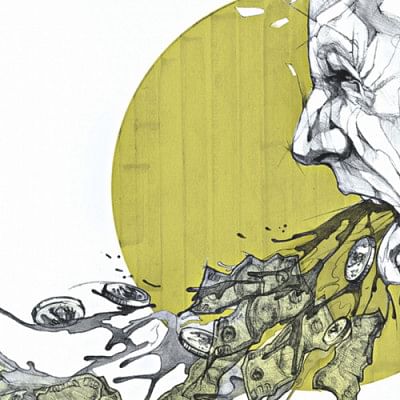The Rise of Hate

In the "long 18th century" (1685-1815), European politics, philosophy, science and communications were radically reoriented during the course of a movement referred to by its participants as the Age of Reason, or simply the Enlightenment. The American and French Revolutions were directly inspired by Enlightenment ideals. Nineteenth-century liberalism and classicism, and 20th-century modernism all owe a heavy debt to the thinkers of the Enlightenment.
Unfortunately, the natural strides that human civilisation should have made towards higher enlightenment have not materialised. In fact, it appears that we are regressing into an age where violence, bigotry and fanaticism are on the rise in almost all societies. Yes, we are living in dangerous times—an Age of Hate!
The explosion of Internet use and electronic media raised unprecedented hopes for the world transforming into a "global village" of ideas and interactions. Expectations ran high that the free and "real-time" exchange of experiences, and denser global communication between communities and nations would morph into a more unified and tolerant world. Regrettably, our optimism seems to have been misplaced. Today, societies are perilously polarised. A culture of intolerance has taken hold in countries as diverse as the United States, the Philippines, India, Brazil, and the Arab world and Europe.
Faced with despondency, I began to search for answers as to why hate and selfishness are in ascendancy and why decency has retreated into the background. There are no easy answers but let me bounce off a few ideas with my reader audience to be able to stimulate a discussion on a critical issue that may be tearing at the moral fibre of our world.
Let's start by admitting that hate always existed but it was hidden in the subterranean levels of our consciousness unless ignited by extreme conditions. Over the last few years, hate has not only taken a blatant form, but has been accepted as "normal" behaviour. It's part of the political and religious discourse in the form of xenophobia, racist slurs, homophobia or sheer bigotry. I attribute this partly to the erosion of moral authority globally; in the past, the voices against bigotry and discrimination were loud and clear. Leaders, no matter what their beliefs, spoke about inclusiveness, tolerance and empathy.
But today we live in a world where the president of the United States, supposedly "the world's moral leader", indulges in the worst forms of hate-mongering. During his campaign he described Mexicans as "rapists", Muslims as "terrorists", and Africans as belonging to "sh*tholes". From the anti-Semitic attack on a Jewish synagogue to the shooting of black people without provocation, America's gun violence story has turned into America's hate story and the country has taken a step back from the modest successes of the civil rights movement.
In Modi's India a blind eye is turned to the excesses perpetrated by the right-wing RSS warriors who are trying to declare India as a "Hindu only" nation and hate crimes against minorities are a daily occurrence.
In Europe, Hungary's Prime Minister Viktor Orban ramped up his anti-migrant rhetoric ahead of elections to score an electoral victory.
In the Arab world hate has taken the extreme form of war and violence in Yemen and Palestine.
Factors like increasing economic inequity, uncensored hateful rhetoric on social media, and reduced direct human interaction are contributing to the hate phenomena. I yearn for the return of the moral compass that world leaders like Martin Luther King Jr, Mahatma Gandhi, Nelson Mandela and Jimmy Carter provided in the past to override racism and intolerance. Today, politicians are fanning tribal instincts to create interest groups or communities that will help them win elections. Consequently, the headlines are mostly dominated by stories about hate and violence, perhaps generating increased anger in the minds of the listeners and viewers.
A friend recently admitted that she doesn't want to listen to the news anymore. According to her, the stress is too much to bear. I reflected on this tradeoff for a while but decided that I want to stay informed rather than be oblivious of the suffering of others. In the absence of leaders who help us empathise with the disenfranchised, we are all responsible for tending to one another's wounds. If we remain unaware of the plight of children in war-torn Yemen, we cannot take action to help or raise our voices against the injustices. Hence blissful ignorance is not an option these days. How we respond to the news is, of course, our choice—rather than get angry and upset we could react with courage and compassion.
We saw this happening in the recent midterm elections in the United States where people at the grassroots level banded together and handed the House of Representatives to the more inclusive party that will strive to save healthcare and benefits for the disadvantaged groups. This wave of change was initiated and promoted by women, minorities and ordinary people at the community and local levels.
Perhaps therein lies part of the solution to the problem of rising hate and violence. When leaders fail us, the citizens must become more informed, galvanise into action and strive to bring about change. In the long run what will sustain the human race is empathy and trust, not divisiveness and hatred. That is what history has taught us time and again.
Milia Ali is a Rabindra Sangeet exponent and a former employee of the World Bank.





Comments